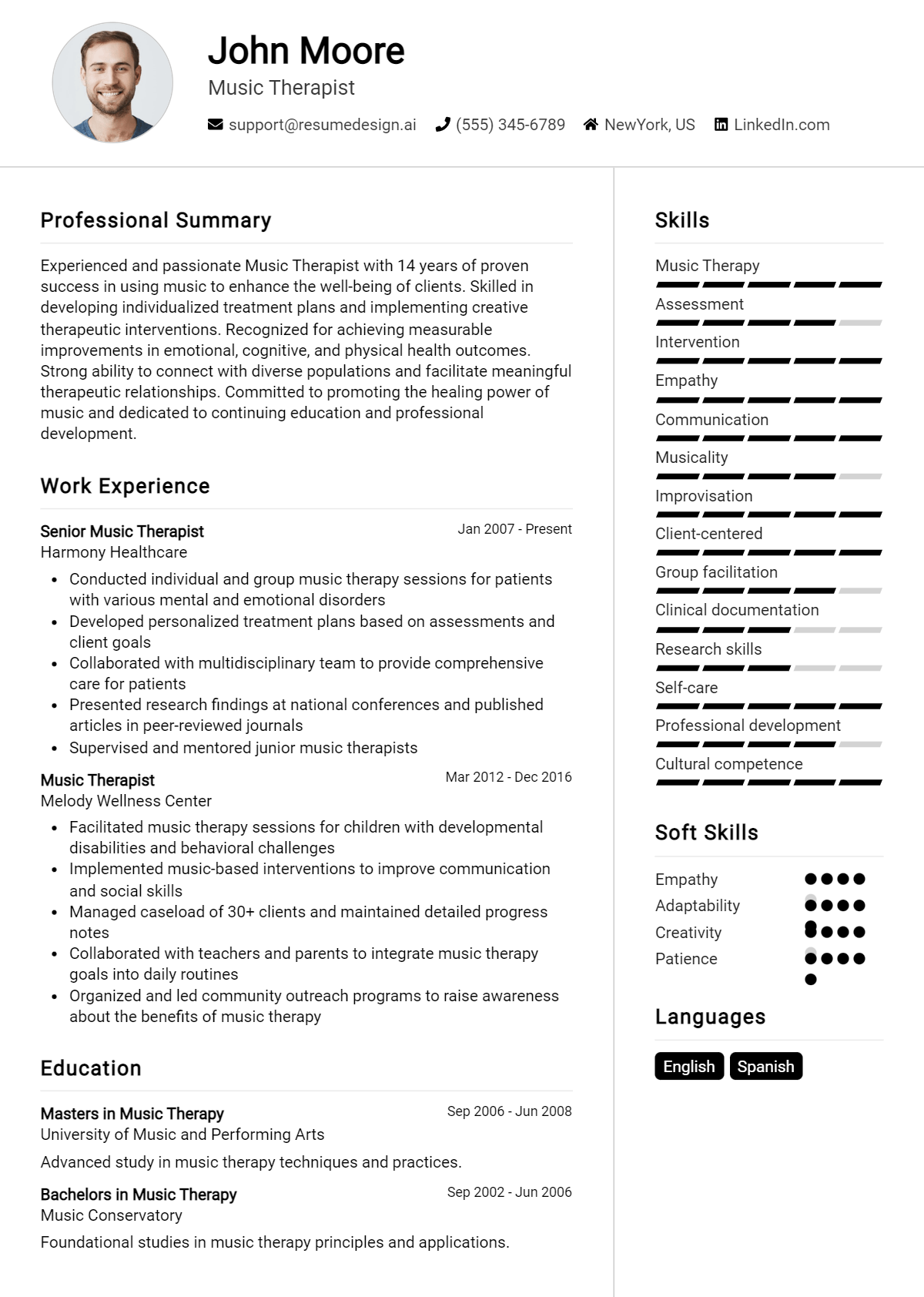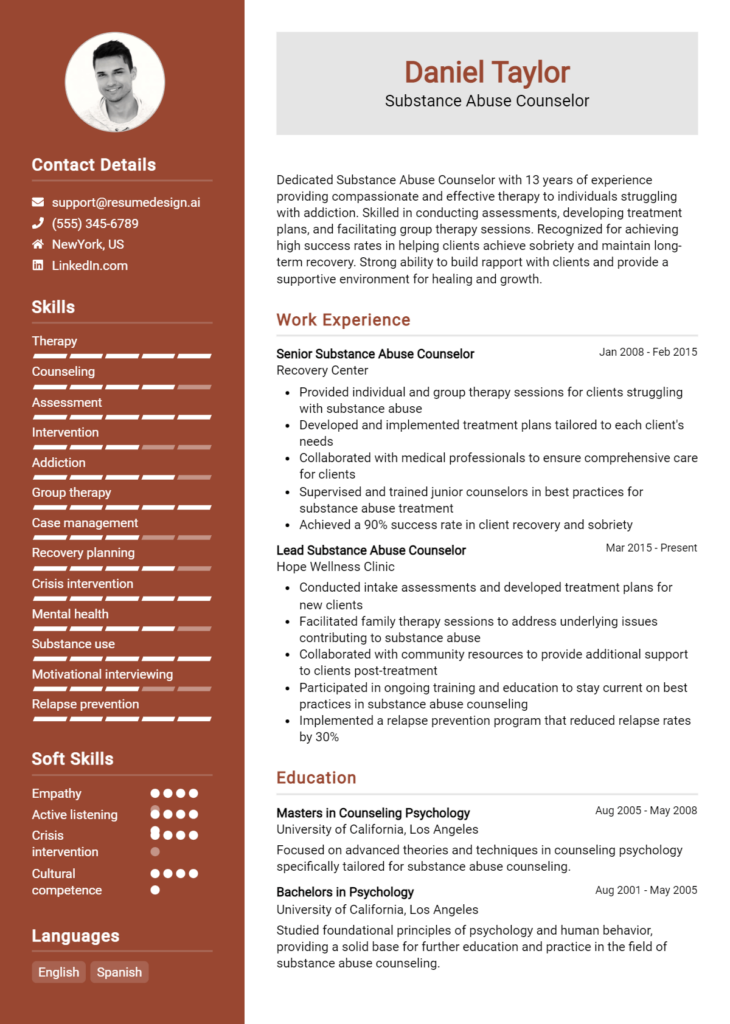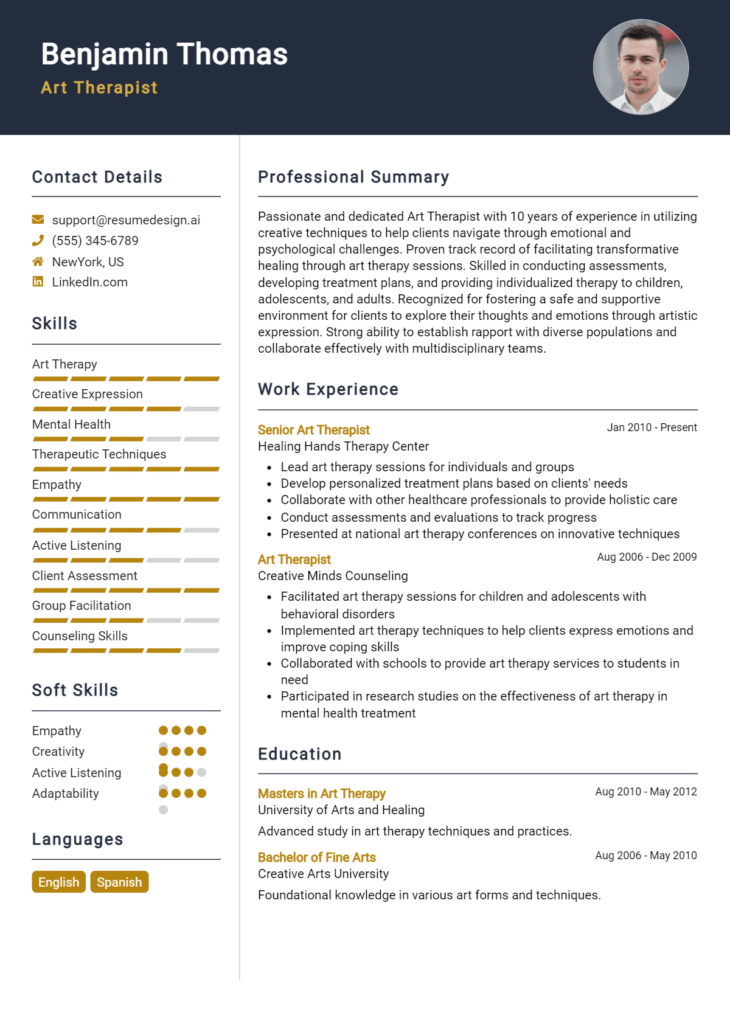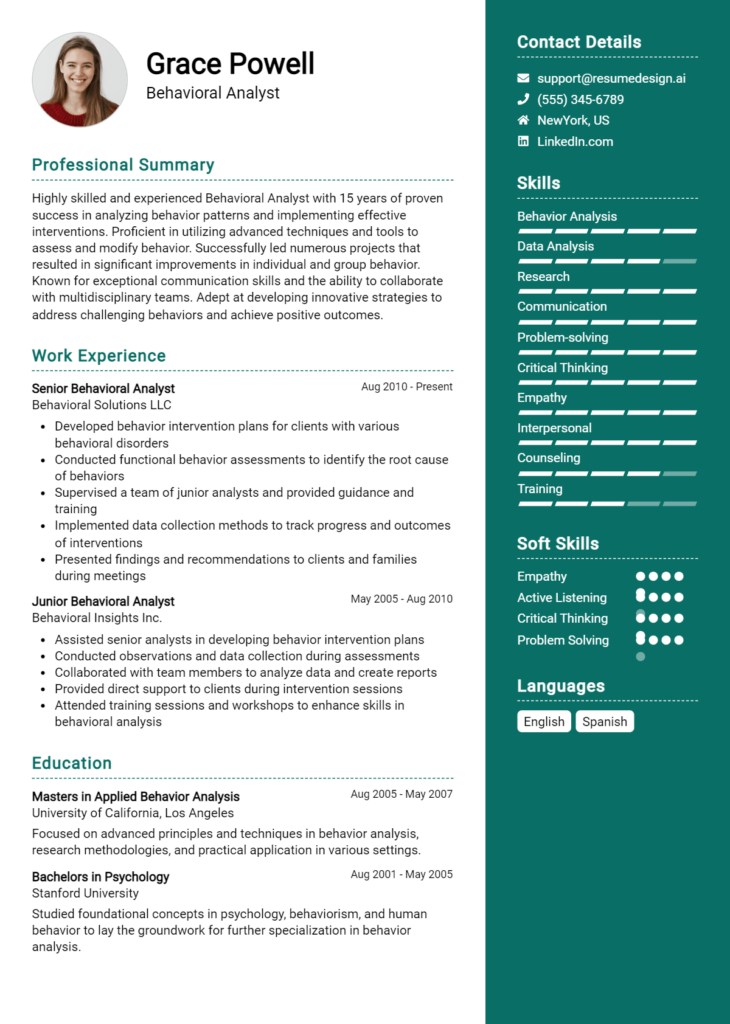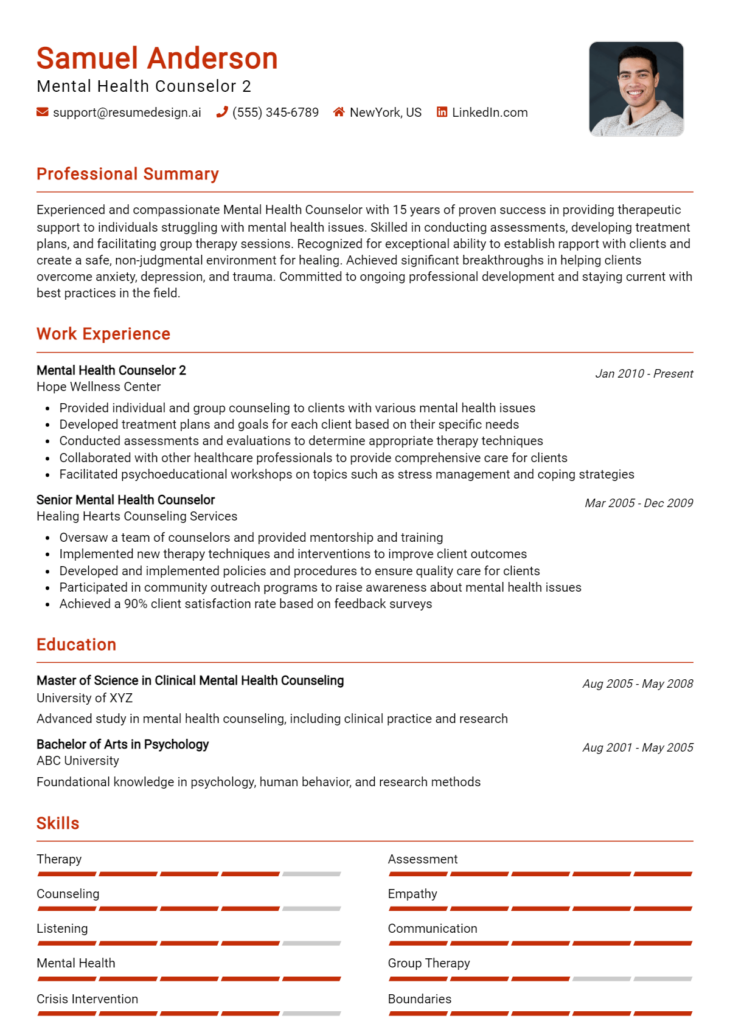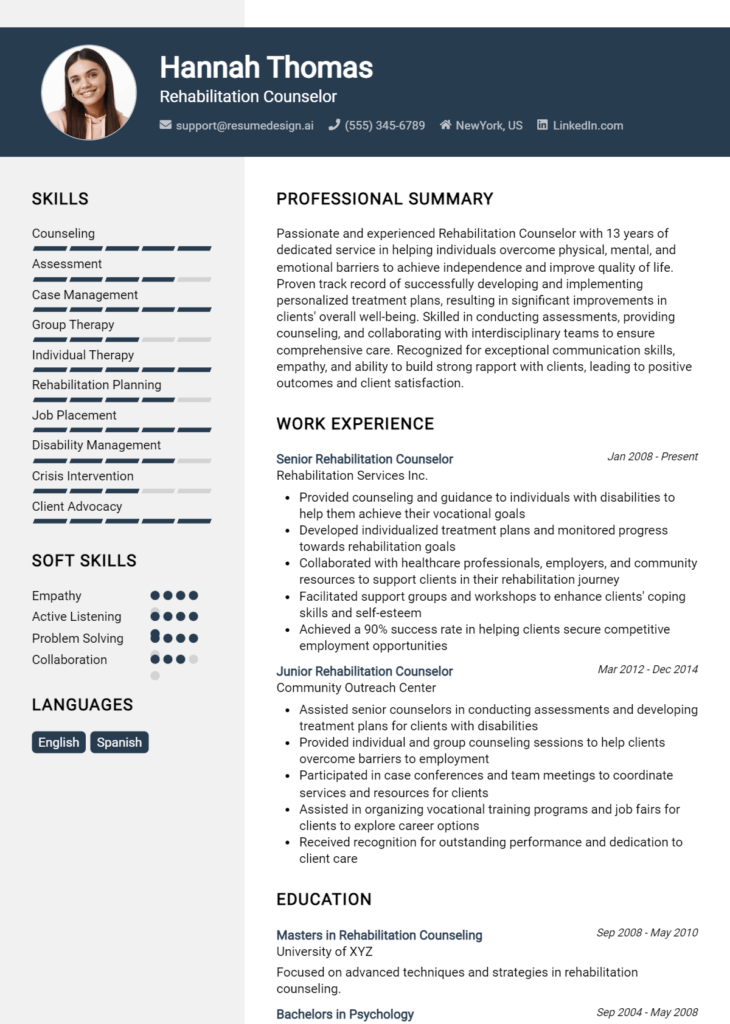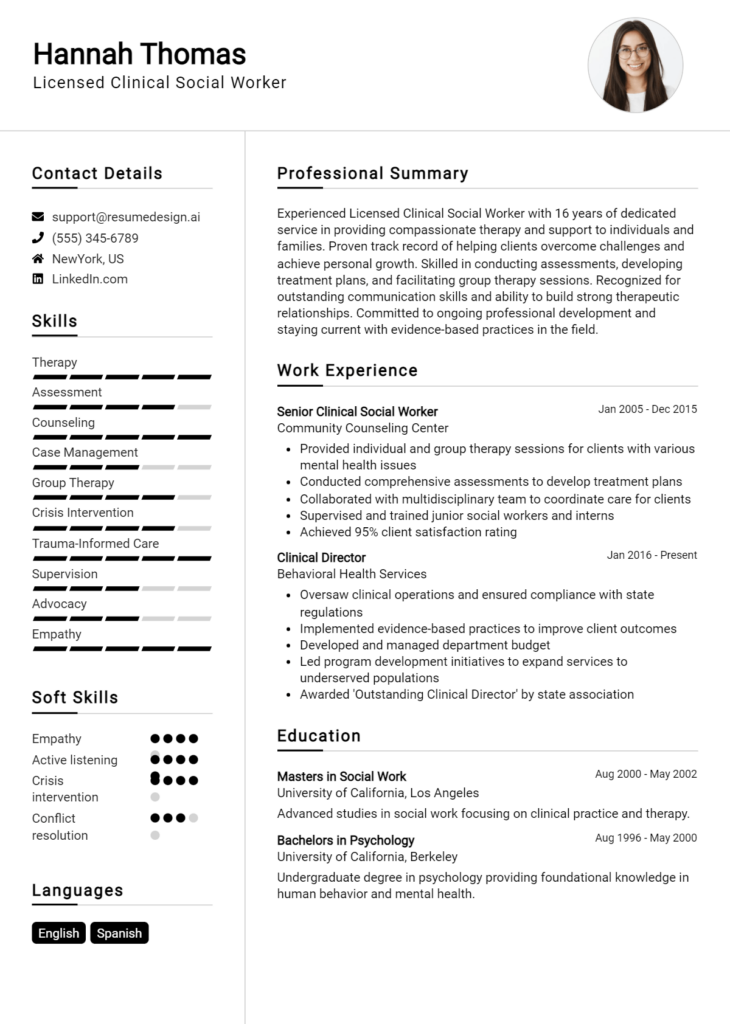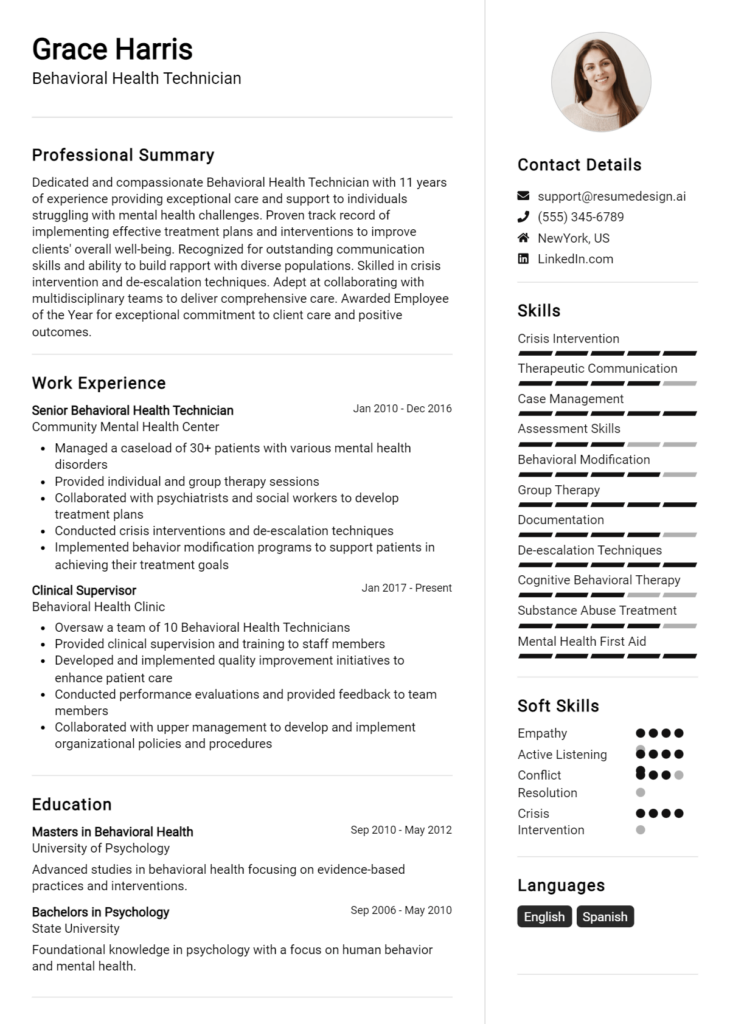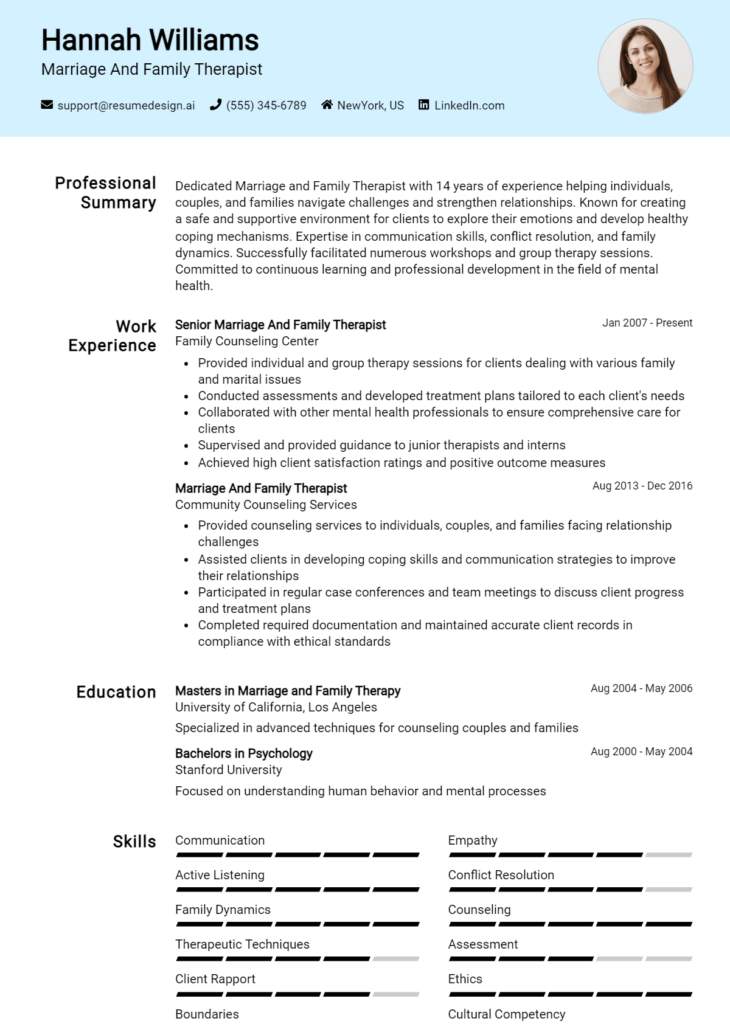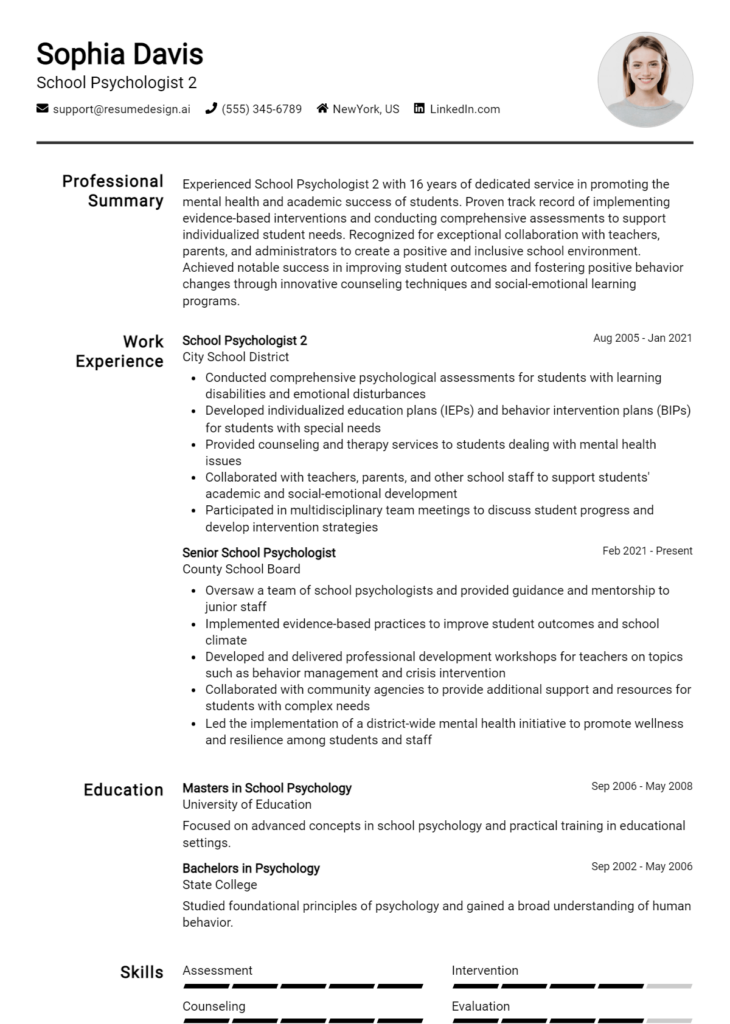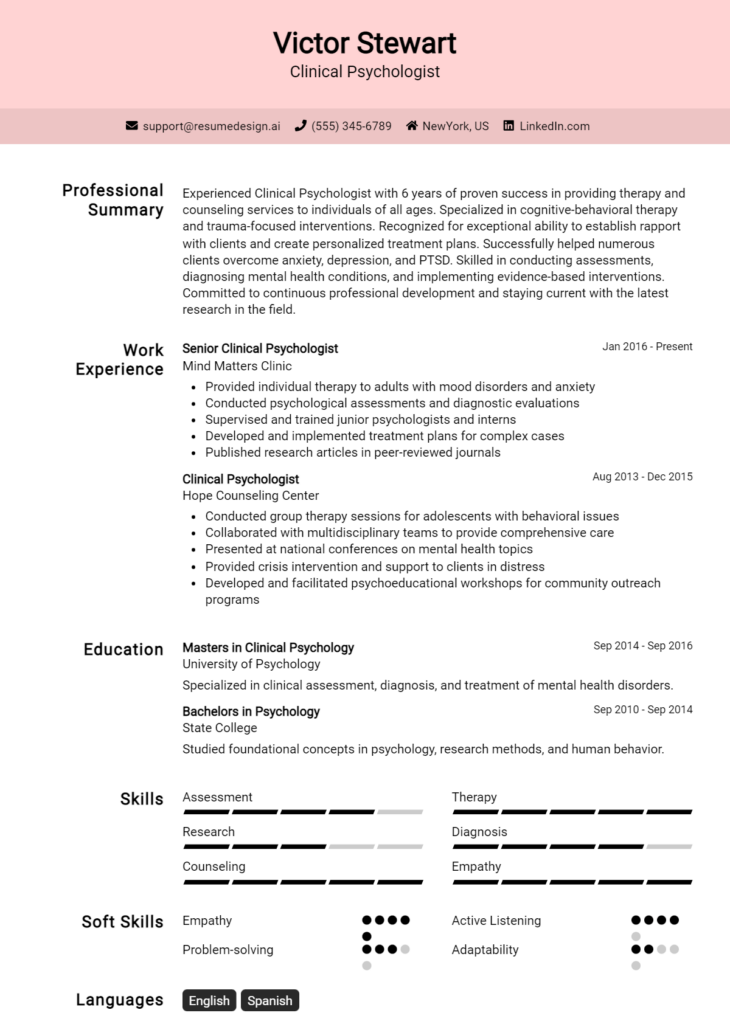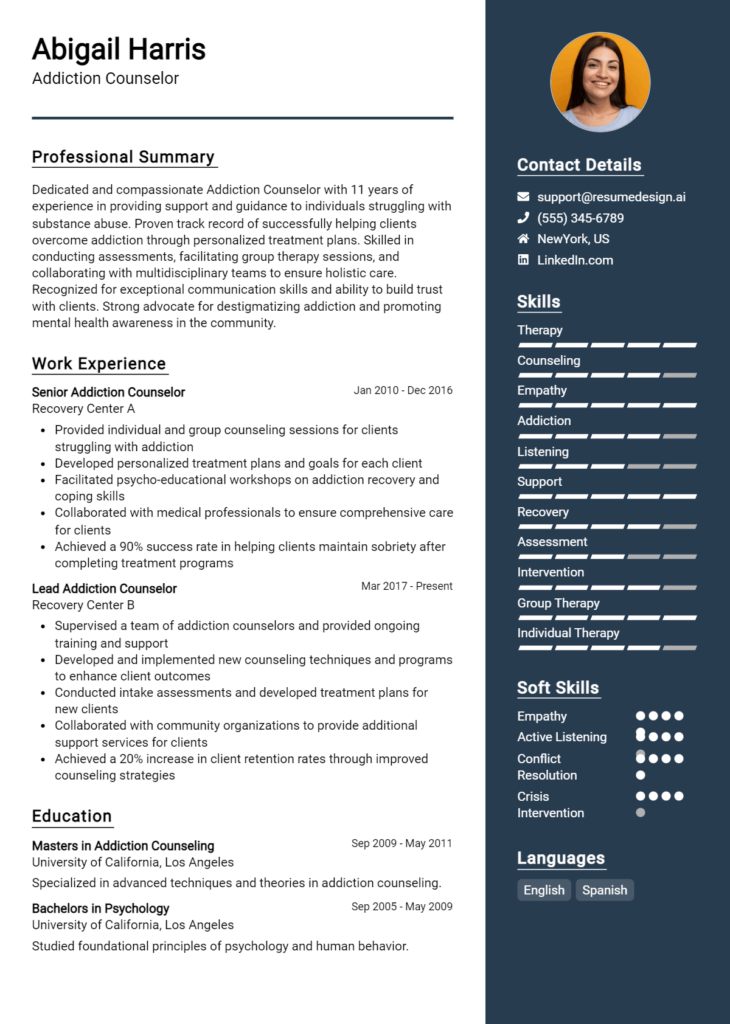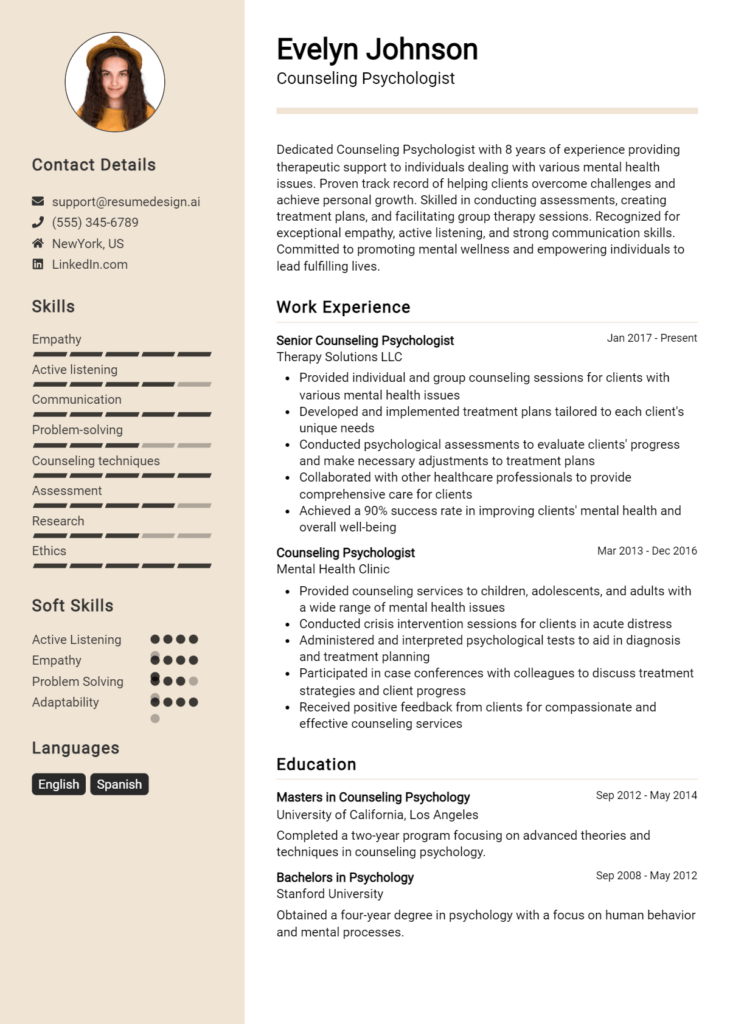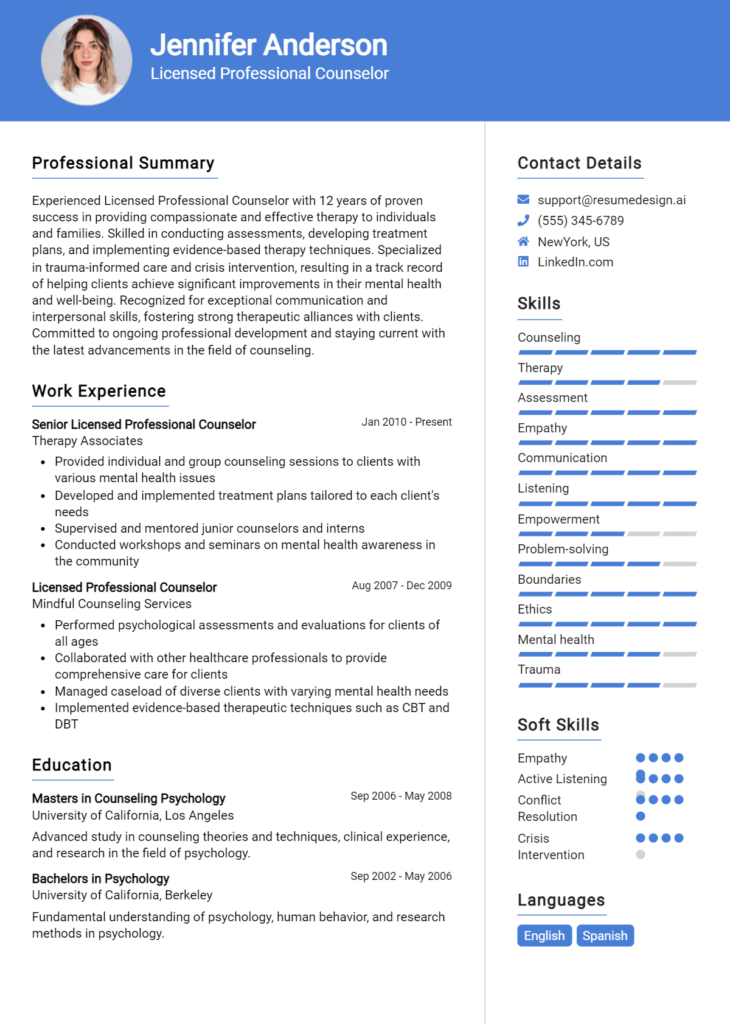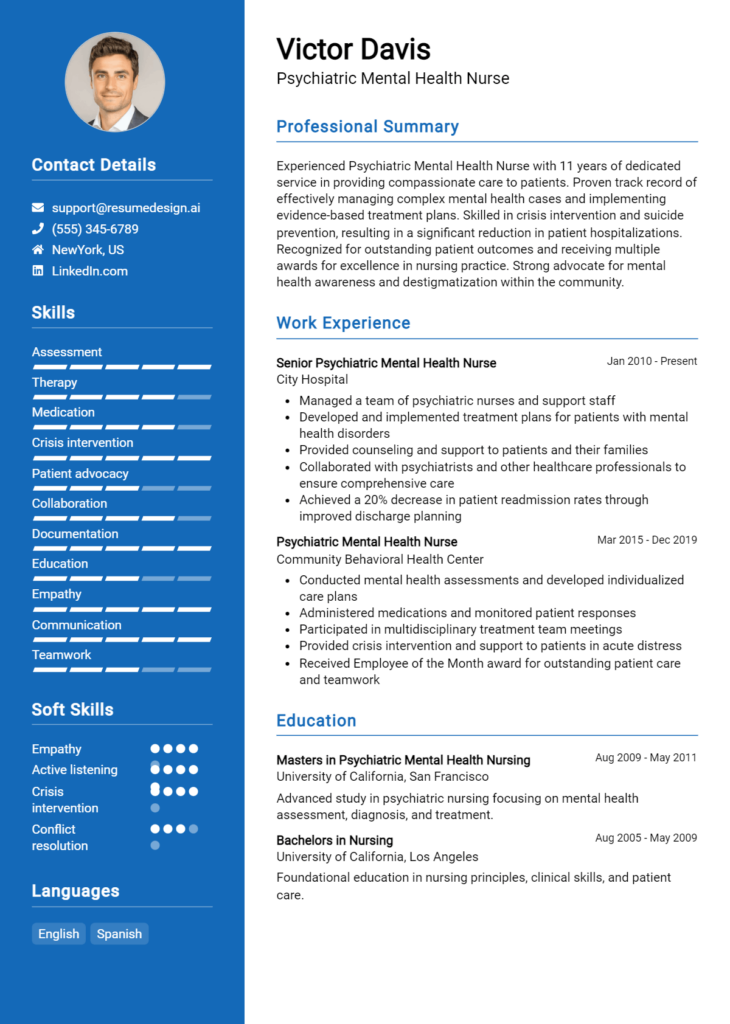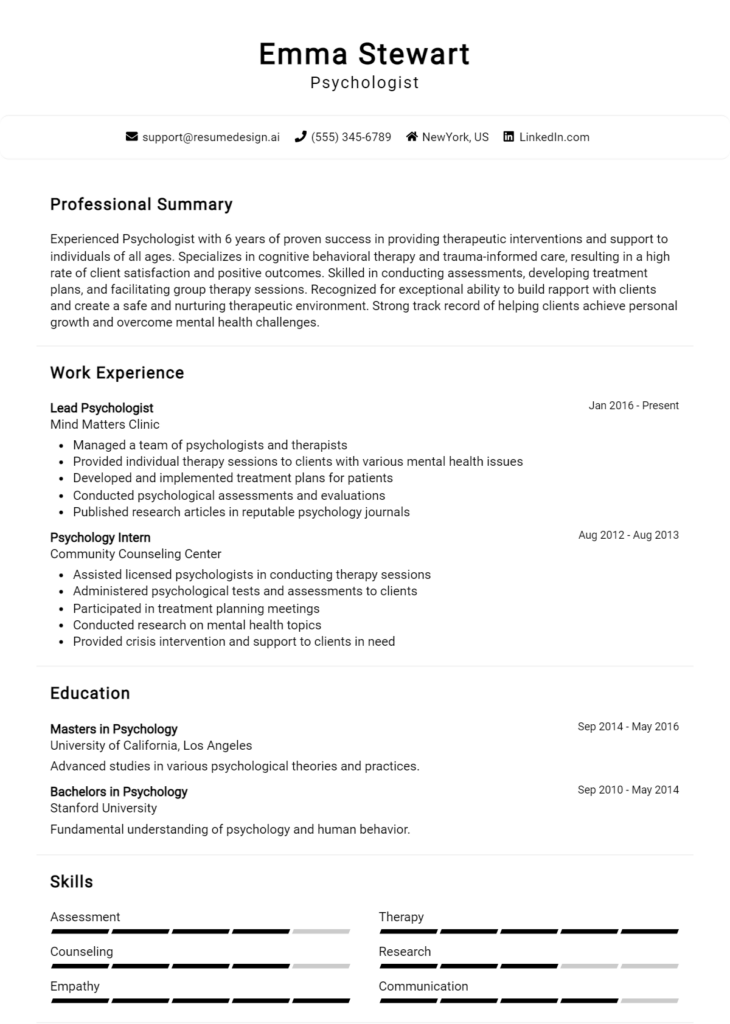Music Therapist Core Responsibilities
Music Therapists play a vital role in promoting emotional, cognitive, and social well-being through the use of music. Their core responsibilities include assessing client needs, designing individualized treatment plans, and implementing therapeutic sessions that utilize music as a healing tool. Successful Music Therapists must possess strong technical skills in music and psychology, operational skills for managing sessions, and problem-solving abilities to adapt interventions. These competencies enable them to effectively bridge healthcare, education, and social services, contributing to the organization’s goals of holistic patient care. A well-structured resume that highlights these qualifications can significantly enhance job prospects in this rewarding field.
Common Responsibilities Listed on Music Therapist Resume
- Conduct assessments to determine clients' needs and goals.
- Design and implement individualized music therapy treatment plans.
- Facilitate therapeutic music sessions in group or individual settings.
- Utilize various musical instruments and technology to enhance therapy.
- Monitor and evaluate clients' progress and adjust treatment plans accordingly.
- Collaborate with multidisciplinary teams to provide comprehensive care.
- Document sessions and maintain accurate client records.
- Educate clients and families about the benefits of music therapy.
- Conduct research on the effectiveness of music therapy interventions.
- Advocate for the inclusion of music therapy in treatment plans.
- Participate in professional development and continuing education.
High-Level Resume Tips for Music Therapist Professionals
A well-crafted resume is crucial for Music Therapist professionals, as it often serves as the first impression for potential employers. In a field where empathy, creativity, and clinical skills intersect, your resume needs to effectively showcase your unique qualifications and accomplishments in therapy and music. A compelling resume not only highlights your relevant skills and experiences but also conveys your passion for helping others through music. This guide will provide practical and actionable resume tips specifically tailored for Music Therapist professionals, ensuring you stand out in a competitive job market.
Top Resume Tips for Music Therapist Professionals
- Tailor your resume to the specific job description by incorporating keywords and phrases from the posting.
- Showcase relevant clinical experience, including internships, volunteer work, and any specialized training.
- Quantify your achievements where possible, such as the number of clients served or improvement metrics of clients’ well-being.
- Highlight industry-specific skills, such as knowledge of music theory, therapeutic techniques, and assessment methods.
- Include certifications and licenses relevant to music therapy, ensuring they are up-to-date and clearly stated.
- Demonstrate your ability to collaborate with interdisciplinary teams, showcasing effective communication and teamwork skills.
- Utilize a clean and professional format that is easy to read, with clear headings and bullet points for quick scanning.
- Incorporate testimonials or case studies that reflect your successful interventions and client outcomes, if applicable.
- Keep your resume concise, ideally one page, focusing on the most relevant and impactful information.
By implementing these tips, you can significantly enhance your resume and increase your chances of landing a job in the Music Therapist field. A well-organized and targeted resume will not only reflect your qualifications but also demonstrate your commitment to the profession, making you a strong candidate in the eyes of potential employers.
Why Resume Headlines & Titles are Important for Music Therapist
In the competitive field of music therapy, a well-crafted resume headline or title holds significant importance. It serves as the first impression to hiring managers, instantly capturing their attention and summarizing a candidate's key qualifications in a single impactful phrase. A strong headline should be concise, relevant, and directly tied to the position being applied for, reflecting the unique skills and experiences that distinguish the candidate from others. By effectively communicating their strengths right from the start, candidates can enhance their chances of standing out in a crowded job market.
Best Practices for Crafting Resume Headlines for Music Therapist
- Keep it concise: Aim for clarity and brevity while conveying essential information.
- Be role-specific: Tailor the headline to reflect the specific position of music therapist.
- Highlight key qualifications: Include relevant skills, certifications, or experiences that showcase your expertise.
- Use action-oriented language: Begin with strong verbs or phrases to convey a sense of initiative and capability.
- Incorporate industry keywords: Use terminology that is relevant to music therapy to align with job descriptions.
- Aim for impact: Choose words that evoke emotion or strength, making the headline memorable.
- Showcase unique qualities: Highlight what sets you apart from other candidates, such as specialized training or unique therapeutic approaches.
- Stay professional: Ensure the tone is appropriate for the healthcare and therapeutic environment.
Example Resume Headlines for Music Therapist
Strong Resume Headlines
Certified Music Therapist with 5 Years of Experience in Pediatric Care
Dedicated Music Therapist Specializing in Trauma-Informed Care and Rehabilitation
Compassionate Music Therapist Skilled in Group Therapy and Community Outreach
Weak Resume Headlines
Music Therapist Looking for Job
Therapist with Music Background
Strong resume headlines are effective because they convey specific qualifications and experiences that resonate with hiring managers, making the candidate memorable and appealing. They provide a clear picture of the candidate's expertise and focus, thereby instilling confidence in their capabilities. In contrast, weak headlines fail to impress due to their vagueness and lack of specificity, leaving hiring managers with little information to gauge the candidate's fit for the role. By avoiding generic phrases and instead opting for impactful, descriptive titles, candidates can significantly improve their chances of being noticed in the hiring process.
Writing an Exceptional Music Therapist Resume Summary
A well-crafted resume summary is a critical component for a Music Therapist as it serves as the first impression a hiring manager receives. This concise overview should encapsulate your most relevant skills, experiences, and accomplishments, quickly capturing attention and setting you apart from other candidates. A strong summary not only highlights your unique qualifications but also demonstrates your understanding of the role and the specific needs of the organization, making it easier for the employer to envision you as a valuable addition to their team. Tailoring this section for each job application ensures that your most pertinent attributes are front and center, creating an impactful introduction to your resume.
Best Practices for Writing a Music Therapist Resume Summary
- Quantify Achievements: Use numbers to showcase your impact, such as the number of clients served or improvements in patient outcomes.
- Focus on Relevant Skills: Highlight specific therapeutic techniques, musical proficiency, or areas of specialization that align with the job description.
- Tailor for Each Job: Customize your summary for each application to reflect the unique requirements and culture of the organization.
- Be Concise: Aim for 2-4 sentences that deliver your message clearly without unnecessary detail.
- Use Action Verbs: Start with strong action verbs to convey your experience and contributions effectively.
- Include Certifications: Mention any relevant certifications or licenses that enhance your credibility as a Music Therapist.
- Showcase Soft Skills: Highlight interpersonal skills such as empathy, communication, and adaptability, which are crucial in therapeutic settings.
- Avoid Jargon: Use clear and straightforward language to ensure your summary is accessible to all readers.
Example Music Therapist Resume Summaries
Strong Resume Summaries
Dedicated Music Therapist with over 5 years of experience in developing personalized treatment plans for diverse populations, resulting in a 30% improvement in patient engagement and satisfaction scores.
Certified Music Therapist skilled in using music interventions to enhance emotional well-being and cognitive function, having successfully facilitated over 200 group therapy sessions with a 95% positive feedback rate from participants.
Compassionate Music Therapist with a Master's degree in Music Therapy and a proven track record of enhancing the therapeutic experience for children with autism, leading to a 40% increase in communication skills among clients.
Weak Resume Summaries
Experienced therapist with knowledge of music therapy.
Music Therapist who has worked with various clients and has some skills in the field.
The strong resume summaries stand out because they are specific, quantifiable, and tailored to the field of music therapy, demonstrating clear achievements and relevant skills. In contrast, the weak summaries lack detail, fail to provide measurable outcomes, and come across as generic, which does not effectively convey the candidate's capabilities or impact in their previous roles.
Work Experience Section for Music Therapist Resume
The work experience section of a Music Therapist resume is a critical component that allows candidates to effectively showcase their technical skills, leadership capabilities, and commitment to delivering high-quality therapeutic outcomes. This section not only highlights relevant professional experiences but also emphasizes the ability to manage teams and collaborate with interdisciplinary members to enhance patient care. Quantifying achievements and aligning experiences with industry standards are essential in demonstrating the candidate's capacity to contribute positively to therapeutic settings and improve client outcomes.
Best Practices for Music Therapist Work Experience
- Clearly articulate technical skills relevant to music therapy, such as proficiency in various therapeutic techniques and music genres.
- Quantify achievements with specific metrics, such as the number of clients served or improvements in patient assessments.
- Highlight collaborative projects that demonstrate teamwork and coordination with healthcare professionals.
- Use action verbs to convey a sense of proactivity and leadership in various roles.
- Align experiences with industry standards and best practices in music therapy.
- Keep descriptions concise and focused on outcomes and impacts rather than duties alone.
- Include relevant certifications and training that enhance technical expertise.
- Tailor the work experience section to the specific job application, emphasizing the most pertinent experiences.
Example Work Experiences for Music Therapist
Strong Experiences
- Developed and implemented a music therapy program that resulted in a 30% improvement in emotional well-being scores among participants over a six-month period.
- Led a team of 5 therapists in a collaborative project that integrated music therapy with art therapy, successfully increasing client engagement by 50%.
- Facilitated group sessions for individuals with autism, achieving a 90% satisfaction rate based on post-session surveys.
- Conducted research on the effects of music therapy in palliative care, presenting findings at a national conference, which contributed to enhanced treatment protocols.
Weak Experiences
- Worked as a music therapist at a clinic.
- Helped clients with various issues.
- Participated in team meetings about music therapy.
- Used music to support patients in their recovery.
The examples of strong experiences are characterized by specific achievements, quantifiable outcomes, and a clear demonstration of leadership and collaboration. They provide concrete evidence of the candidate's impact and technical expertise in music therapy. In contrast, the weak experiences lack detail, focus, and measurable results, making them less compelling and informative for potential employers.
Education and Certifications Section for Music Therapist Resume
The education and certifications section of a Music Therapist resume serves as a vital component that showcases the candidate's academic background and professional qualifications. This section not only highlights relevant degrees and industry-recognized certifications but also emphasizes the candidate's commitment to continuous learning and professional development in the field of music therapy. By providing pertinent coursework, specialized training, and certifications, candidates can significantly enhance their credibility and demonstrate their alignment with the job role, making them more appealing to potential employers.
Best Practices for Music Therapist Education and Certifications
- Include relevant degrees such as a Bachelor’s or Master’s in Music Therapy or a related field.
- List certifications from recognized bodies, such as the Certification Board for Music Therapists (CBMT).
- Highlight specialized training or workshops that enhance therapeutic skills, such as Neurologic Music Therapy.
- Use specific course titles that are directly applicable to music therapy practices.
- Emphasize any continuing education credits to show commitment to professional growth.
- Be concise and clear, ensuring all listed credentials are relevant to the job role.
- Include dates of completion for certifications and degrees to portray currency in knowledge.
- Prioritize the most relevant and advanced qualifications at the top of the list.
Example Education and Certifications for Music Therapist
Strong Examples
- Bachelor of Music Therapy, University of ABC, 2020
- Board Certified Music Therapist (MT-BC), Certification Board for Music Therapists, 2021
- Advanced Training in Neurologic Music Therapy, NMT Training Institute, 2022
- Coursework in Psychology and Therapeutic Techniques, University of ABC, 2019
Weak Examples
- Associate Degree in General Studies, Community College, 2018
- Certification in Basic Guitar Playing, Local Music School, 2019
- Online Course in Music Appreciation, 2020
- High School Diploma, 2017
The examples categorized as strong demonstrate a direct relevance to the field of music therapy, showcasing advanced qualifications and specialized training that align with industry standards. In contrast, the weak examples reflect educational qualifications that lack relevance to the music therapy profession or do not demonstrate the necessary depth of knowledge and skills required for the role. By focusing on strong examples, candidates can effectively convey their expertise and readiness for the position.
Top Skills & Keywords for Music Therapist Resume
As a Music Therapist, showcasing the right skills on your resume is crucial for standing out in a competitive field. Employers look for candidates who not only possess technical proficiency but also demonstrate emotional intelligence and interpersonal abilities. Highlighting both hard and soft skills can give potential employers insight into your therapeutic approach and your capacity to connect with clients through music. A well-crafted skills section can play a pivotal role in conveying your qualifications, making it essential to tailor your resume effectively to reflect your strengths in these areas.
Top Hard & Soft Skills for Music Therapist
Soft Skills
- Empathy
- Communication
- Active Listening
- Patience
- Adaptability
- Creativity
- Problem-Solving
- Team Collaboration
- Cultural Sensitivity
- Conflict Resolution
- Emotional Resilience
- Time Management
- Flexibility
- Motivational Skills
Hard Skills
- Music Theory Knowledge
- Instrument Proficiency (e.g., guitar, piano, percussion)
- Clinical Assessment Techniques
- Therapeutic Practice Models
- Knowledge of Music Therapy Techniques
- Familiarity with Music Software and Technology
- Record Keeping and Documentation
- Knowledge of Psychological and Developmental Disorders
- Group Facilitation Skills
- Lesson Planning and Curriculum Development
- Research Skills
- Crisis Intervention Techniques
- CPR and First Aid Certification
- Understanding of Ethical and Legal Considerations in Therapy
For a more comprehensive look at how to effectively integrate these skills into your resume, consider exploring additional resources on skills and work experience.
Stand Out with a Winning Music Therapist Cover Letter
I am writing to express my enthusiasm for the Music Therapist position at [Organization Name], as advertised on [Where You Found the Job Posting]. With a Master’s degree in Music Therapy from [University Name] and over [X years] of hands-on experience working with diverse populations, I am excited about the opportunity to contribute to your team and support your clients in achieving their therapeutic goals through the power of music.
In my previous role at [Previous Organization Name], I successfully developed and implemented customized music therapy programs for individuals facing challenges such as developmental disabilities, mental health issues, and chronic pain. By utilizing a variety of musical interventions—including songwriting, improvisation, and guided imagery—I was able to foster emotional expression, enhance cognitive skills, and promote social interaction among clients. My collaborative approach with interdisciplinary teams has allowed me to provide holistic care, ensuring that each client’s unique needs are met and their progress is regularly monitored.
I am particularly drawn to [Organization Name] because of your commitment to [specific value or initiative of the organization that resonates with you], and I am eager to bring my passion for music therapy to your community. My proficiency in various musical styles and instruments, combined with my strong communication and interpersonal skills, will enable me to connect with clients and create a safe, nurturing environment for healing. I believe that every individual has the potential to thrive through music, and I am dedicated to helping them uncover that potential.
Thank you for considering my application. I look forward to the opportunity to discuss how my background, skills, and passion for music therapy can align with the goals of [Organization Name]. I am excited about the possibility of contributing to your team and making a positive impact in the lives of those you serve.
Common Mistakes to Avoid in a Music Therapist Resume
When crafting a resume as a music therapist, it's essential to present your skills and experiences effectively to stand out in a competitive job market. However, many applicants make common mistakes that can hinder their chances of landing an interview. By recognizing and avoiding these pitfalls, you can create a compelling resume that highlights your qualifications and passion for music therapy.
Neglecting to Tailor the Resume: Failing to customize your resume for each job application can make it seem generic. Tailor your skills and experiences to match the specific requirements of the position you're applying for.
Using Jargon Without Explanation: While industry-specific terminology can demonstrate expertise, overusing jargon without clarification may alienate hiring managers. Always ensure that your language is accessible to a broader audience.
Listing Responsibilities Instead of Achievements: Simply listing job duties doesn't convey your impact as a music therapist. Focus on quantifiable achievements and outcomes that showcase your effectiveness in past roles.
Ignoring Formatting Consistency: A cluttered or inconsistent format can distract from your qualifications. Use a clean, professional layout with consistent font styles, sizes, and spacing to improve readability.
Omitting Relevant Certifications and Training: Music therapy requires specific qualifications and certifications. Ensure that your resume prominently features any relevant credentials, such as board certification or specialized training.
Failing to Showcase Soft Skills: While technical skills are crucial, soft skills like empathy, communication, and adaptability are equally important in music therapy. Highlight these attributes to demonstrate your holistic approach to patient care.
Using an Unprofessional Email Address: An unprofessional email can leave a negative impression. Create a simple, professional email address that includes your name to enhance your credibility.
Not Including Continuing Education: The field of music therapy is ever-evolving. Failing to mention any continuing education or professional development can make it seem like you're not committed to staying current in your field.
Conclusion
As a Music Therapist, your role is pivotal in facilitating emotional healing and promoting well-being through the power of music. Throughout this article, we've explored the various techniques and approaches used in music therapy, the importance of understanding your clients' needs, and the therapeutic outcomes that can be achieved. It’s essential to stay current with best practices and continually refine your skills, particularly when it comes to presenting your qualifications effectively.
A well-crafted resume is crucial in showcasing your unique experiences and credentials. Ensure that your resume highlights your educational background, relevant certifications, and practical experience in music therapy. Use clear, impactful language that reflects your passion for helping others through music.
Now is the perfect time to review your Music Therapist resume to ensure it stands out in a competitive job market. Take advantage of the available resources to enhance your application materials. Explore the variety of resume templates that can help you present your information in a polished manner. If you prefer a more guided approach, try the resume builder to create a tailored resume that meets industry standards.
Additionally, consider looking at resume examples to gain inspiration and see what works well for others in the field. Don’t forget the importance of a compelling cover letter; check out the cover letter templates to ensure your application is comprehensive and persuasive.
By taking these steps, you can enhance your professional profile and increase your chances of landing your desired position as a Music Therapist. Start revising your materials today!

